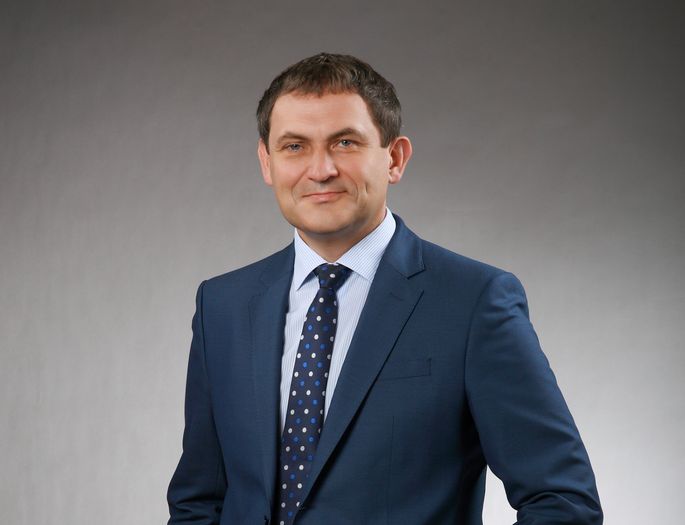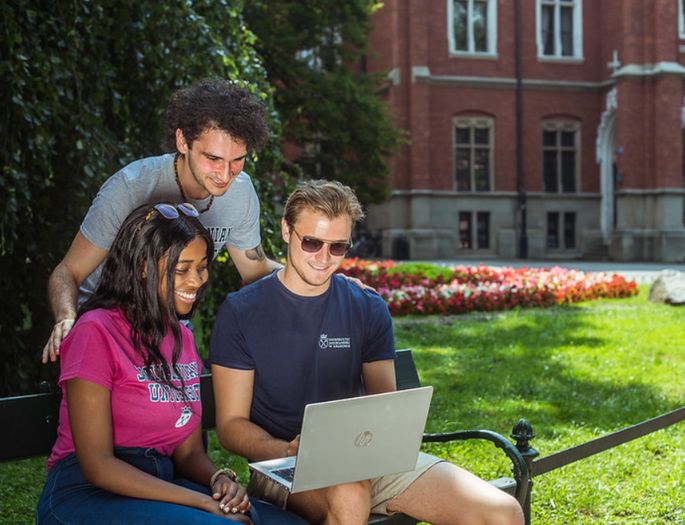
In a paper published in the latest issue of the journal Advances in Psychiatry and Neurology, Prof. Przemysław Bąbel from the Jagiellonian University Institute of Psychology and Prof. Paweł Ostaszewski from the SWPS University of Social Sciences and Humanities Institute of Psychology argue that the approach to people on the autism spectrum should strike a balance between considering this disorder a manifestation of developmental differences in people and the validity of reasons for subjecting them to therapy.
There is an ongoing discussion about therapy for people with autism, with views that behavioural therapy is a kind of ‘conditioning’ and violence against these people becoming increasingly common. On the one hand, the authors of the paper ‘Between neurodiversity and therapy. On the importance of making a conscious and responsible choice of methods of supporting people on the autism spectrum’ show their respect for the position of those who support the existence of neurodiversity, and on the other hand, they advocate that due consideration should be given to the scientifically sound arguments based on which parents make decisions about sending their children to therapy. The following paragraphs are excerpts from the paper.
‘In recent years, we have witnessed significant social changes in the perception of developmental disorders and diverse neurodevelopmental trajectories, such as the autism spectrum. Many social movements and researchers strongly emphasize the perspective of neurodiversity as ordinary diversity in the pace and manner of human development, with all its behavioral (including psychological) consequences. Voices advocating for a shift from the previously “medicalized” perspective to accepting the fact that people develop and behave differently are becoming more prominent. This perspective suggests modifying the social conditions in which they function. This shift would enable these individuals to develop and function in society in line with their neurodevelopmental profile from the earliest years of life. This approach is fundamentally correct, deeply humanistic, and is marked by empathy and a spirit of tolerance and mutual acceptance – seemingly an appropriate direction for the evolution of human society.
‘While everyone has the right to decide not only about their own development and therapy but also about the development and therapy of their children or those under their legal guardianship, these decisions should be respected, regardless of their nature. However, freedom of choice also entails taking responsibility for the consequences. These consequences include effects not only on individuals and their families (such as providing long-term care, often of a very basic nature; limiting the environment accessible to those under care, particularly restricting access to educational environments; reducing the chances of learning necessary functional skills, and causing stigma and social isolation), but also, in some cases, on their social environment (such as hindering others’ functioning in a shared environment, triggering or intensifying fear reactions, or rare but existent aggressive behaviors towards peers or teachers). For these reasons, some parents and guardians seek effective forms of support, and decisions in this regard should be perceived in the spirit of tolerance for a consciously and responsibly made choice.
‘Scientific data unequivocally indicate that the majority of available forms of evidence-based therapy and developmental support for individuals on the autism spectrum are based on Applied Behavior Analysis (ABA; one of the current behavioral approaches in therapy and other life domains), which is often referred to as Behavioral Therapy (BT) in Poland. This is not particularly surprising, as these methods are based on the application of the basic processes that govern human behavior, such as operant conditioning, classical conditioning, and observational learning. Regardless of how our development unfolds, and regardless of where we may be on the autism spectrum, we all learn from an early age to adapt to the demands of our environment, although we rarely realize it. Therefore, methods based on learning processes are not only the most effective but also the most natural.
‘Importantly, ABA does not aim to change a person or their identity (it does not seek to “cure autism”, colloquially speaking) but teaches a broad range of socially significant behaviors and helps the person gain experience of which behaviors are most effective in different conditions. In this way, the developing individual has the opportunity to choose activities according to the environment they are in.
‘While the use of ABA methods can support the realization of the demands of neurodiversity advocates, it often encounters their far-reaching criticism. Nothing serves the development of science and practice better than discussion, provided it is open, critical, substantive, and conducted with mutual respect. However, the discussion between advocates of neurodiversity and contemporary behavioral psychology (ABA, BT) does not always have such a character as it sometimes involves false information about the goals, methods, and course of therapy or educational interventions. Some of this misinformation probably stems from a lack of knowledge about contemporary behavioral psychology and the changes that have occurred in its development, but its consequence may be that recipients are misled.
‘People differ, and the perspective of neurodiversity excellently reflects this diversity, simultaneously emphasizing respect for the right of every individual to follow their unique path of development. Engaging in therapy and specialized forms of education is very much in line with the perspective of neurodiversity, which should be taken into account so that the choice of goals and therapy methods will not only meet the individual needs of each person but will also allow the realization of values held by them and their caregivers. For this to happen, the choice of therapy methods should be based on scientific evidence of their effectiveness, and the selected therapy must be conducted by qualified individuals whose work is subject to supervision. Although the right of caregivers to decide whether to subject their wards to therapy is undeniable and should be respected, their decision should consider not only their own values but also those considered significant by society, and above all, the well-being of the child, which is the highest value’.
The full version of the paper, along with sources, is available in both Polish and English on termedia.pl.





